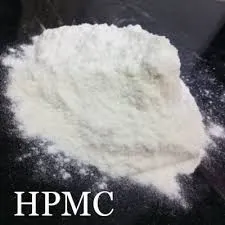
Nov . 16, 2024 07:38 Back to list
hydroxyethyl cellulose
Understanding Hydroxyethyl Cellulose Properties, Applications, and Benefits
Hydroxyethyl cellulose (HEC) is a versatile and widely used non-ionic cellulose ether. It originates from the natural polymer cellulose, which is extracted from plant cell walls. By modifying cellulose through the introduction of hydroxyethyl groups, HEC is created, resulting in a compound with unique properties that have found numerous applications across various industries. This article delves into the properties, applications, and benefits of hydroxyethyl cellulose.
Chemical Properties
HEC is characterized by its high solubility in water, forming clear and viscous solutions. This solubility is highly dependent on the degree of hydroxyethyl substitution, which influences its molecular weight and viscosity. Generally, HEC exhibits rheological properties, meaning it can alter the flow of liquids. It acts as a thickening agent, improving the texture and stability of formulations while preventing sedimentation and separation of components.
Another crucial property of HEC is its non-ionic nature, which means it does not carry any charge. This feature allows HEC to be compatible with a wide range of other substances, including surfactants, polymers, and active ingredients, making it an ideal candidate for various formulations. Furthermore, HEC is stable across a broad pH range and maintains its properties even in the presence of electrolytes, ensuring its effectiveness in diverse conditions.
Applications
The applications of hydroxyethyl cellulose are extensive, spanning several fields, notably in pharmaceuticals, cosmetics, construction, and food processing
.1. Pharmaceuticals HEC serves as a reliable thickening agent and binder in pharmaceutical formulations, including tablets, gels, and ointments. Its ability to enhance the viscosity of solutions makes it particularly useful in controlling the release of active ingredients, leading to improved therapeutic outcomes. Additionally, HEC is often used as an emulsifying agent in creams and lotions, providing a stable medium for delivering active components.
hydroxyethyl cellulose

2. Cosmetics In the cosmetic industry, HEC is utilized in a wide array of products, such as shampoos, conditioners, lotions, and creams. Its thickening capabilities enhance the overall texture and application of these products, while its film-forming properties can help improve the adherence of makeup and skin treatments. As a non-toxic and skin-friendly ingredient, HEC is preferred for sensitive skin formulations.
3. Construction In construction, HEC functions as a crucial additive in cement and mortar formulations. It aids in improving workability, water retention, and overall adhesive strength, which are essential for durable and long-lasting structures. Its ability to retain moisture also contributes to better hydration of cement, leading to improved strength development.
4. Food Processing Hydroxyethyl cellulose is classified as a food additive and is used as a thickener and stabilizer in various food products. Its non-toxic nature and acceptable safety profile make it a preferred choice for enhancing the texture and consistency of sauces, dressings, and bakery products.
Benefits
One of the primary benefits of hydroxyethyl cellulose is its versatility. Its compatibility with a wide range of formulations allows for its use in multiple industries, showcasing its adaptability. Furthermore, being derived from natural cellulose means that HEC is biodegradable and environmentally friendly, aligning with the growing demand for sustainable materials.
Another significant advantage is its inert nature, which minimizes the risk of adverse reactions and makes it suitable for sensitive applications, such as in cosmetics and pharmaceuticals. Additionally, the rheological properties of HEC enable formulators to create products with improved performance, enhancing user experience and satisfaction.
Conclusion
Hydroxyethyl cellulose is a multifunctional ingredient with extensive applications across various industries. Its unique chemical properties, coupled with its benefits, make it an essential component in pharmaceuticals, cosmetics, construction, and food processing. As the demand for innovative and effective formulations continues to grow, HEC stands out as a reliable ingredient that meets the diverse needs of manufacturers and consumers alike. Its safety, efficacy, and environmental friendliness position hydroxyethyl cellulose as a key player in the development of modern products, contributing to a sustainable future.
-
Versatile Hpmc Uses in Different Industries
NewsJun.19,2025
-
Redispersible Powder's Role in Enhancing Durability of Construction Products
NewsJun.19,2025
-
Hydroxyethyl Cellulose Applications Driving Green Industrial Processes
NewsJun.19,2025
-
Exploring Different Redispersible Polymer Powder
NewsJun.19,2025
-
Choosing the Right Mortar Bonding Agent
NewsJun.19,2025
-
Applications and Significance of China Hpmc in Modern Industries
NewsJun.19,2025







